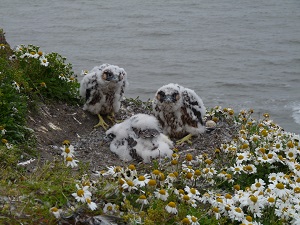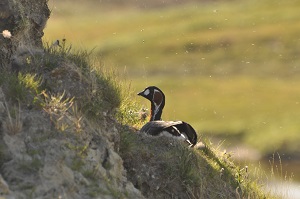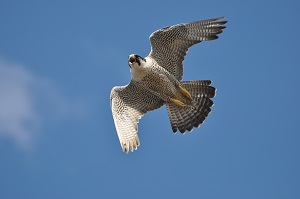Rosneft Launches a New Cycle of Research as Part of Its Biodiversity Conservation Program

A Rosneft research expedition to study valuable bird species living in the Yenisei River estuary on the Brekhovsky Islands started from the port of Dudinka. The full-scale surveys of birds by boat and on foot will be conducted for the first time in the last 30 years in this ornithological area of international importance, the fauna of lakes and wetlands will be studied, including by unmanned aerial vehicles. Field work will be carried out with the participation of specialists from the Severtsov Institute for Problems of Ecology and Evolution of the Russian Academy of Sciences.
 The expedition marks the beginning of a new cycle of the corporate program for the conservation of biodiversity in Arctic ecosystems. In 2024-2027, scientists will work in the north of the Krasnoyarsk region — on the Taimyr Peninsula. According to one of the versions, the name of the region comes from the Old Tungus word «tamura» — valuable, rich. «Tamura» is also the name of a new environmental program being implemented by Rosneft’s Arctic Research Center.
The expedition marks the beginning of a new cycle of the corporate program for the conservation of biodiversity in Arctic ecosystems. In 2024-2027, scientists will work in the north of the Krasnoyarsk region — on the Taimyr Peninsula. According to one of the versions, the name of the region comes from the Old Tungus word «tamura» — valuable, rich. «Tamura» is also the name of a new environmental program being implemented by Rosneft’s Arctic Research Center.
The first destination will be the Tanama River, a left tributary of the Yenisei. According to the few scientific data, the validity of which scientists have yet to verify, the main nesting sites of the Red-breasted barnacle and the Red Book Peregrine Falcon are located there. Further research will continue on the Brechov Islands themselves, which are listed as a wetland of international importance.  More than 100 species of waterfowl and wetland birds inhabit the area and about 60 more species nest there.
More than 100 species of waterfowl and wetland birds inhabit the area and about 60 more species nest there.
The Tamura program for 2024-2027 also includes research on the Kara subpopulation of polar bears, wild reindeer populations in western Taimyr, and fish research in the Yenisei estuary. A number of activities are planned for the current field season, including aerial surveys of the shores of the Yenisei Bay to develop ecological sensitivity maps.
Rosneft Information Division
Rosneft Oil Company
June 28, 2024